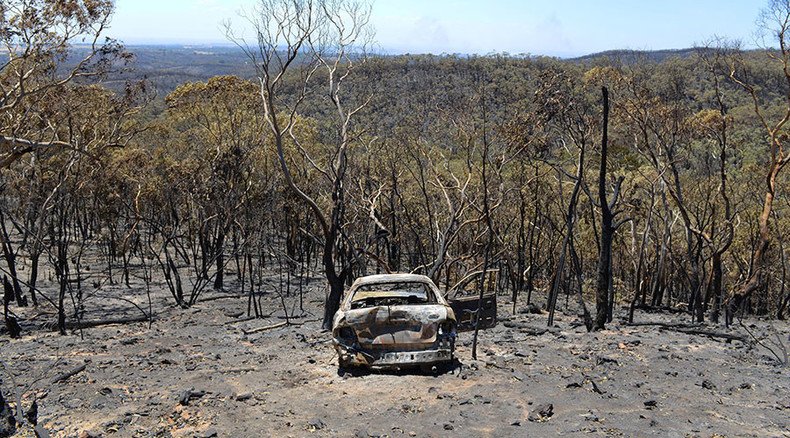Bushfires rage in Australia as ‘Godzilla El Nino’ takes affect

Over 100 bushfires are blazing in the state of Victoria, Australia, with over 200 homes at risk. Unusually high temperatures and strong winds have fueled the fires, which are threatening areas about 80 kilometers northwest of Melbourne.
Firefighters are struggling to put out the blazes, with changing wind directions making their task even more difficult. Aerial water bombers have also been called in to provide assistance, as gusts of wind have reached over 100 kilometers an hour.
Smoke blowing over @edgarsmission#Lancefield#VicFires@CFA_Updatespic.twitter.com/bb01dkGvBP
— Edgar's Mission (@edgarsmission) October 6, 2015The Country Fire Authority (CFA) says that over 100 fires are raging north of Melbourne, while local politicians have been urging locals to take precautions.
“The 15/16 fire season is here now. It is absolutely on us and we need to understand that this is going to be a long, hot, dry, and dangerous summer and people need to be very clear and get your fire plan in order,” Victorian Premier Daniel Andrews told ABC News.
Justin McManus has taken this incredible photo of a house destroyed in #vicfires. http://t.co/qWtHqEh3Ylpic.twitter.com/Vrae8j6vKj
— Allison Worrall (@allisonworrall) October 6, 2015The unusually hot weather is being blamed on an extreme El Nino weather pattern that has been described internationally as ‘Godzilla El Nino.’
#Fire Update: Wind moving fire East towards Lancefield. Fire in Bridies Lane. Please DO NOT call. @CFA_Updates here pic.twitter.com/eCsztdx6Dm
— Edgar's Mission (@edgarsmission) October 6, 2015Dr Andrew Watkins, the manager of climate predictions with the Australian Bureau of Meteorology, said that parts of Australia have already been experiencing high temperatures, while Melbourne was around 16 degrees above its average for this time of the year.
The 1 VLAT & 1 LAT from our mates @NSWRFS will help our 21 aircraft working on #VicFires#weworkasonepic.twitter.com/KPRBcDez9c
— CFA Updates (@CFA_Updates) October 6, 2015"We could probably attribute this to the El Nino event that we're seeing at the moment, those clear skies, dry soil, not much rain about to keep things cool and that weather, that hot weather, now feeding in over southeastern Australia," he said, as cited by ABC.
Photo taken by my sister on the main road of #Lancefield just before #vicfires@CFA_Updatespic.twitter.com/fCUIvnTRHE
— Michael Nicholls (@micknicholls) October 6, 2015The heat wave has led to Victoria introducing its earliest total fire ban ever. The blanket ban means that the lighting of any fires in the open air is prohibited, as is the use of incinerators and welding equipment, among other activities.












